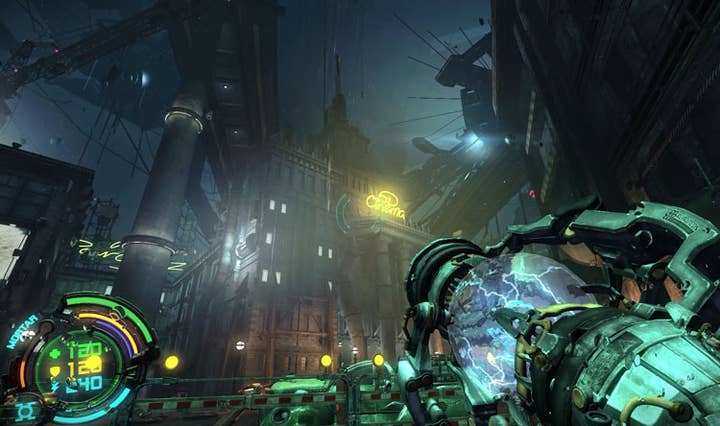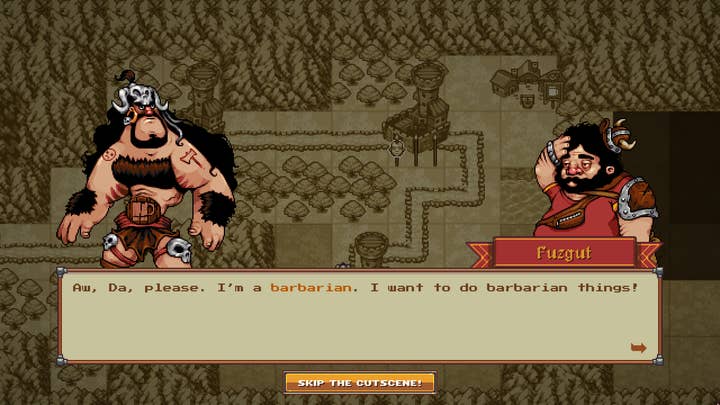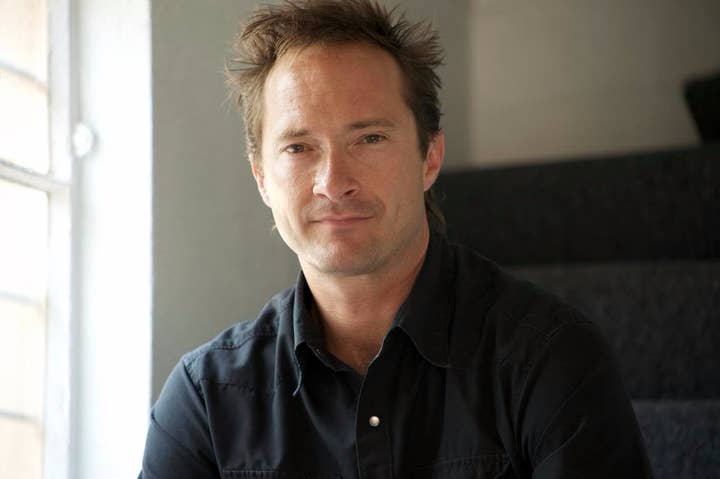Gambitious: 3 years, 6 successful projects
"We got in this for the long haul" says Mike Wilson
Gambitious launched in 2012 and quickly established itself as a very different type of crowdfunding platform. It offered a more professional approach than existing sites like Kickstarter and while it required more of developers, like a detailed business plan, it also allowed them to keep their own IP.
Three years on and the success of the scheme is self evident, every game that Gambitious has signed up has been funded and released, and even more importantly four of the first six titles returned a profit for investors within the first month of sales. We spoke to one of the founders, Mike Wilson, as the company prepared to debut three titles, Crush Your Enemies by Vile Monarch, Hard Reset Redux by Flying Wild Hog, and Zombie Night Terror by No Clip, at PAX.
I think the key has been a couple of things that are core to our philosophy, the main one being that these projects are treated as real business cases, just like any experienced publisher would do. And our experience is weighted heavily on the indie side of things, so we are perhaps more adept than most at helping these wonderfully small and ambitious teams think through all the things they might not have experience with to actually get their projects to market. Also, monies are paid out over milestones throughout development, just like any publisher or VC would do. All best intentions aside, giving any type of artist or startup all of their money in one lump at the start of a project with no real deadlines is going to result in the budget being blown through much faster than it should be, and typically without a good answer on how to finish, nevermind market the project and release it.

Our games have been all over the map with regards to genre, but they have mostly had something playable to show before we signed them, which helps eliminate a lot of the guessing about fun factor, especially with new teams and more experimental concepts. We have been and still are pretty conservative as far as budget and scope of the projects, with our publishing team needing time to gel and several of our teams being first timers on commercial releases. We feel like we're in a great place now to start to scale the projects both in number and scope.
Some of the pixel art games are harder to get investors with only a casual knowledge interested, I'd say. Many of these people don't play games really, so visual splendor in a video helps. But since all the investors we're talking to are investing alongside Gambitious and it's founding partners and often the other founders of Devolver as well, and they are investing on the same terms we do, they are more likely to take our word for it that games that look simple can still do quite well.
We believe in providing whatever help a developer needs and wants, offering suggestions and feedback when asked, but other than approving milestones and keeping an eye on the schedules and budgets, we really like to let the creatives do their thing. We have a great deal of trust in the instincts of the developers we work with in knowing their game and their audience and we really do not try to influence that vision.
We have a lot of experience on our team, but we also realize that we are not game developers ourselves, and always keep our ego's in check when it comes to that. And we've worked with a couple of experienced developers who have needed very little from us other than help with QA, localization, and PR/marketing. So it's really à la carte.

So far it has been largely friends and family and some people in our professional networks who are familiar with our founders' track record and experience and feel like they can trust us as they invest alongside us. We are starting to grow the network somewhat more aggressively now that we have a track record and a fully functional publishing team for all platforms. These are people who have enough money that 5k or more on a project won't ruin them if they lost it, since that's always a possibility, and they are typically people who already invest in the stock market or mutual funds or whatever and are looking for something more interesting and fun to try. Many of them used to be gamers, some are still gamers, and almost all of them have a passionate gamer in their families.
It's hard to say, but there are an awful lot of people like the ones who currently invest, so we certainly don't need to change who are investors are; we just want to add more to be able to greenlight more great games.
The pro's are seemingly obvious, getting active evangelical gamers behind your project from the start can be very successful for creating awareness, and getting a bigger crowd of people involved is exciting. We believe very much in the idea of gamers being to invest smaller amounts, but we also take the responsibility of this very seriously. People not accustomed to investing can be more likely to invest more than they can afford without really reading all the disclaimers and risks involved, and we do not want to be in the business of taking advantage of those people at all.
Fig has been fun to watch and we are very impressed with what they've accomplished in a short amount of time. We are hoping for the best for them, but I will admit we are also a little afraid that they might be going faster than is prudent in offering investments to the general public, at least from what we've seen in the few years we've been working on this now. Everyone has a different level of risk tolerance, and fortune can certainly favor the bold, and we do genuinely hope it works out very well for them, as it could be quite damaging for the entire idea of investing for revenue share if things don't go well and the lawsuits start to fly. These disappointments are quite common with donation-based crowdfunding projects, but you're entering a world much more serious implications when it comes to investments and projections, never mind internationally.
This is why we've chosen to be patient and wait for the dust to settle fully in all the major territories before we go back to the idea of public-facing raises. We got in this for the long haul, and believe in it strongly, and feel some responsibility to provide a path forward after the gold rush phase of crowdfunding is behind us.

